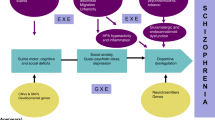Abstract
In any research of human populations, the classical principles of bioethics (respect for autonomy, non-maleficence, beneficence, proportionality between risks and benefits, and justice) should be strictly followed. The question of individual and/or community rights should also be considered, as well as some neglected rights, such as the right to benefit from progress in science and technology and the right to know the nature of the group’s biological and cultural history; however, in their urge to assure rights, social researchers, bioethics commissions, non-governmental organizations, and community leaders are, in many cases, crossing the limits of good sense. DNA is sometimes interpreted as synonymous to demoniac, and there is a frequent behaviour that I could only describe using a neologism: geneticophobia. There is an irrational attitude against genetic studies aiming to unravel the biological history of a given people and to classify any genome population study as “racist”. This behaviour should be opposed; science and the scientific study of humankind are the only way we have to reach the socially adequate objective of the maximum of happiness to the largest number of persons.
Similar content being viewed by others
References
Beauchamp TL, Childress JF (2001) Principles of biomedical ethics, 5th edn. Oxford University Press, Oxford
Brown JR (2008) Comparative genomics. Basic and applied research. CRC Press, Boca Raton
Choudhury SR, Knapp LA (2006) A review of international and UK-based ethical guidelines for researchers conducting nontherapeutic genetic studies in developing countries. Eur J Hum Genet 14:9–16
Darwin C (1859) On the origin of species by means of natural selection, or the preservation of favoured races in the struggle for life. John Murray, London
Forster MW et al (1998) A model agreement for genetic research in socially identifiable populations. Am J Hum Genet 63:696–702
Fullerton SM, Lee SS-J (2011) Secondary uses and governance of de-identified data: lessons from the human genome diversity panel. BMC Med Ethics 12:16
Hurtado AM, Salzano FM (2004) Introduction. In: Salzano FM, Hurtado AM (eds) Lost paradise and the ethics of research and publication. Oxford University Press, New York, pp 3–23
McEwen JE et al (2013) Evolving approaches to the ethical management of genomic data. Trends Genet 29:375–382
Reardon J, TallBear K (2013) “Your DNA is our history”. Genomics, anthropology, and the construction of whiteness as property. Curr Anthropol 53(Suppl 5):S233–S244
Salzano FM (2004) Why studies in tribal populations? In: Salzano FM, Hurtado AM (eds) Lost paradises and the ethics of research and publication. Oxford University Press, New York, pp 70–85
Schermer M (2013) Science and pseudoscience. The difference in practice and the practice it makes. In: Pigliucci M, Boudry M (eds) Philosophy of pseudoscience. University of Chicago Press, Chicago, pp 203–233
Vitti JJ et al (2012) Human evolutionary genomics: ethical and interpretive issues. Trends Genet 28:137–145
WHO (1964) Research in population genetics of primitive groups. World Health Organization, Geneva
WHO (1968) Research on human population genetics. World Health Organization, Geneva
Acknowledgments
Thanks are due to the persons who always agreed to participate in my research in a friendly way. My studies are financed by Conselho Nacional de Desenvolvimento Científico e Tecnológico (CNPq, 473118/2012-2) and Fundação de Amparo à Pesquisa do Estado do Rio Grande do Sul, Programa de Apoio a Núcleos de Excelência (FAPERGS/PRONEX, 10/0024-6).
Compliance with ethics guidelines
All my research strictly followed ethical standards, adequately reviewed by institutional and national committees, and in accordance with the Helsinki Declaration of 1975, as revised in 2000. Informed consent was obtained from all persons included in my studies.
Conflict of interest
Francisco M. Salzano declares that he has no conflict of interest.
Author information
Authors and Affiliations
Corresponding author
Additional information
This article is part of the special issue on “Genetics and Ethics in Latin America”.
Rights and permissions
About this article
Cite this article
Salzano, F.M. Bioethics, population studies, and geneticophobia. J Community Genet 6, 197–200 (2015). https://doi.org/10.1007/s12687-014-0211-3
Received:
Accepted:
Published:
Issue Date:
DOI: https://doi.org/10.1007/s12687-014-0211-3




